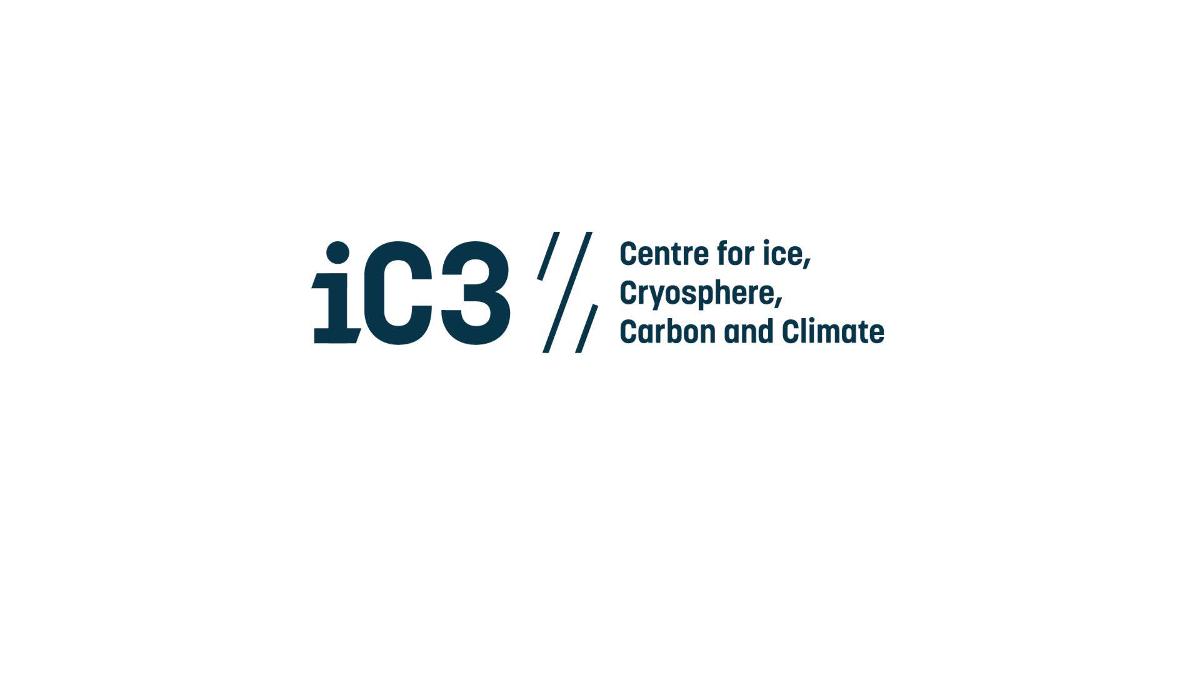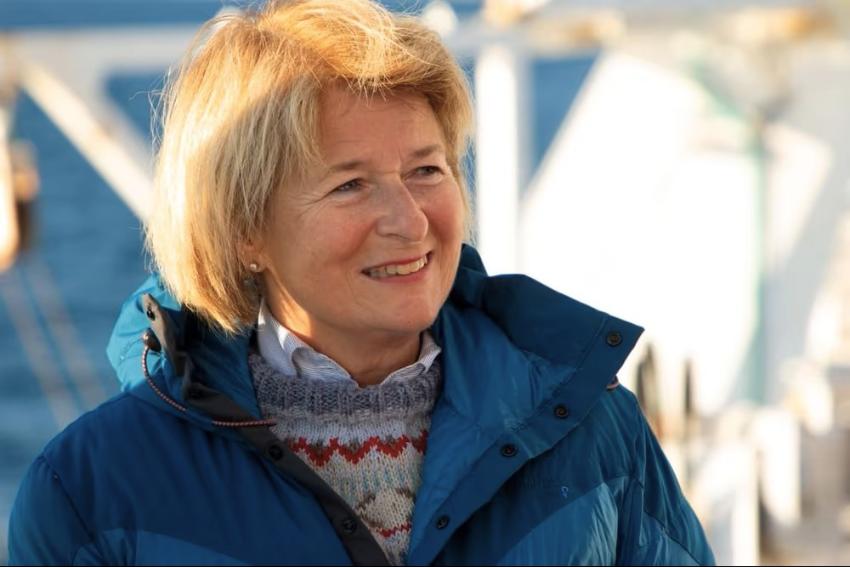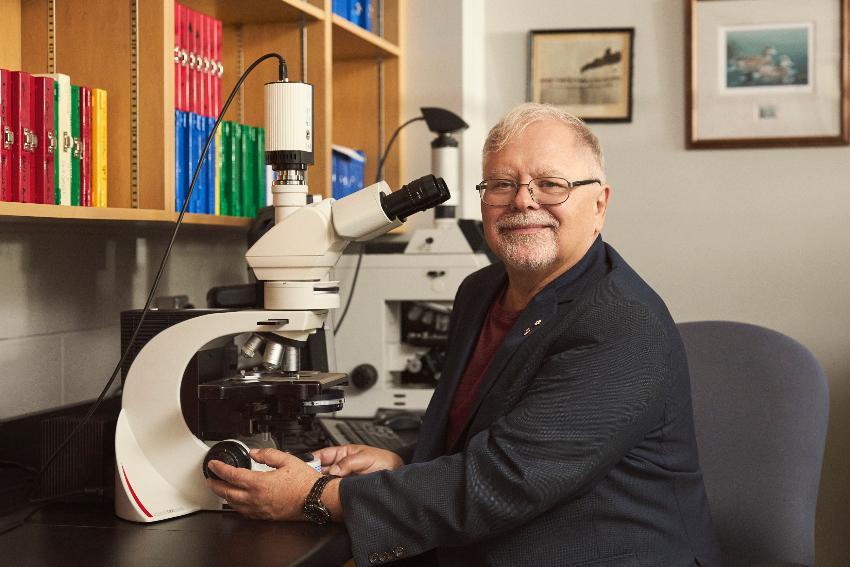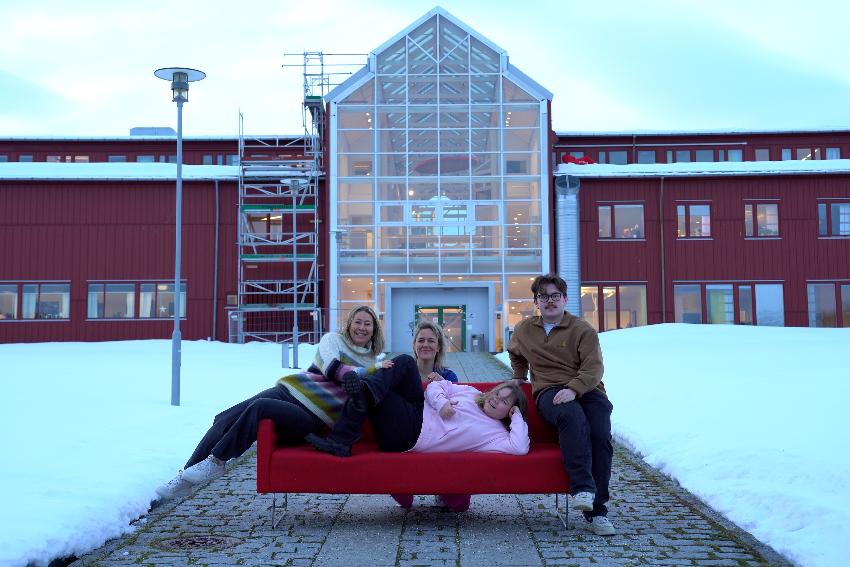Starting up a new center for outstanding research
UiT The Arctic University of Norway is now starting up its brand-new centre for outstanding research. In collaboration with the Norwegian Polar Institute and NORCE, the centre will bring together world-leading researchers to take a closer look at how the melting of glaciers and ice sheets affects Earth´s carbon cycle and climate.

Under strong competition from many internationally-leading research groups, UiT received the go-ahead in the autumn of 2022 to create a new centre for outstanding research (SFF).
The centre will bring together the world's best researchers on ice sheet melting and the global carbon cycle. The objective is to fill a large knowledge gap around how melting glaciers and ice sheets affect the globe's carbon budget and climate.
The research centre has been given the name iC3 – Centre for ice, Cryosphere, Carbon and Climate, and its status as an SFF arises from many years of research collaboration. The centre is hosted at the Department of Geosciences at UiT and will unite research forces at UiT, the Norwegian Polar Institute, NORCE and other partners in Norway and internationally.
The official start-up of the centre is on 1 July, and the centre will receive funding from the Research Council of Norway for up to ten years to build up research effort in this important field.
Facts about SFF
By facilitating funding over a ten-year period, the aim is that the leading researchers in the country can organize themselves in research centres to achieve ambitious research goals through collaboration.
The SFFs must be characterized by innovative research that has high potential for boundary-breaking results, propelling forwards international research.
A powerhouse for polar research
- iC3 will become a powerhouse for polar research. What we are building now will bring together the best researchers globally and give us new knowledge around this topic. There is still great uncertainty about how changes in our ice sheets will affect the global carbon budget and thus Earth´s climate, explains Jemma Wadham.
She is Professor of Glaciology and will lead the research center together with Associate Professor Monica Winsborrow.
Wadham explains that they are in full swing recruiting what they need in terms of personnel, and that the first year of operation will be marked by that.
- We will recruit managers, researchers, and both post-doctoral and PhD fellows. It is intensive work that will time over the next year, explains Wadham.
The melting of ice sheets affects so many different fields, and therefore, researchers from many different disciplines must be involved.
- You must bring together scientists who understand ice sheet melting, those who understand biological and chemical processes, researchers who work with sediments and the bedrock below, along with oceanographers who can decipher links between changing ice sheets and the oceans, Wadham explains.
An important part of such a long-term investment is also to support the careers of future researchers.
- This sits at the heart of iC3, and we have an ambition to cultivate and train a new generation of interdisciplinary polar researchers, who together, will engage politicians and the public about the importance of this research field, says Monica Winsborrow.
Director of Research at the Norwegian Polar Institute, Harald Steen, believes iC3 strengthens institute collaboration across disciplines.
- iC3 will link UiT, the Norwegian Polar Institute and NORCE even more closely together and create synergies both nationally and internationally, says the research director.
Several relevant research projects underway
Although funding for the center does not start until 1 July, several research projects to be linked to the new center have received funding in the past six months.
- iC3 will gather such research projects under one unified umbrella. Our goal is for iC3 to grow over time and attact new research and collaborations from all over the world, says Wadham.
In addition, iC3 is well underway in collecting important data, with fieldwork in Greenland and Svalbard already this year. They are also in the process of planning several major research expeditions at sea and on land, both in Antarctica and the Arctic.
Big questions require big cooperations
iC3 will benefit from the fact that Norway has excellent research capability at both poles, both through infrastructure, research stations and several polar vessels.
The questions which iC3 will address are complex and data from field observations, models and innovative technologies must be gathered from many corners of the polar regions.
That is why collaboration with many different players has also been planned, the two largest of which are the Norwegian Polar Institute and NORCE.
- The Norwegian Polar Institute adds crucial knowledge and important infrastructure needed to understand how ice sheet melting affects polar marine ecosystems, explains Wadham.
NORCE will contribute with modeling the impacts of ice sheets on a global scale.
- We at NORCE are looking forward to this collaboration, which will promote our work in modeling interactions between ice sheets and climate, says NORCE's project manager Petra Langebroek.
- We are happy to have the opportunity to put knowledge from the center into a global perspective by using NorESM, says Langebroek.
-
Fiskeri- og havbruksvitenskap - bachelor
Varighet: 3 År -
Fiskeri- og havbruksvitenskap - master
Varighet: 2 År -
Akvamedisin - master
Varighet: 5 År -
Bioteknologi - bachelor
Varighet: 3 År -
Arkeologi - master
Varighet: 2 År -
Peace and Conflict Transformation - master
Varighet: 2 År -
Geosciences - master
Varighet: 2 År -
Biology - master
Varighet: 2 År -
Technology and Safety - master
Varighet: 2 År -
Computational chemistry - master
Varighet: 2 År -
Law of the Sea - master
Varighet: 3 Semestre -
Biologi - bachelor
Varighet: 3 År -
Nordisk - årsstudium
Varighet: 1 År -
Luftfartsfag - bachelor
Varighet: 3 År -
Pedagogikk - bachelor
Varighet: 3 År -
Arkeologi - bachelor
Varighet: 3 År -
Likestilling og kjønn - årsstudium
Varighet: 1 År -
Historie - bachelor
Varighet: 3 År -
Geovitenskap- bachelor
Varighet: 3 År -
Kjemi - bachelor
Varighet: 3 År -
Samfunnssikkerhet - bachelor
Varighet: 3 År -
Samfunnssikkerhet - master
Varighet: 2 År -
Kunst - bachelor
Varighet: 3 År -
Kunsthistorie - master
Varighet: 2 År -
Religionsvitenskap - årsstudium
Varighet: 1 År -
Romfysikk, sivilingeniør - master
Varighet: 5 År -
Klima og miljøovervåkning, sivilingeniør - master
Varighet: 5 År -
Sosialantropologi - bachelor
Varighet: 3 År -
Historie - master
Varighet: 2 År -
Anvendt fysikk og matematikk, sivilingeniør - master
Varighet: 5 År -
Barnevernsarbeid - master
Varighet: 2 År -
Forfatterstudium 2 - årsstudium
Varighet: 1 År -
Fine Art - master
Varighet: 2 År -
Barnevern - bachelor
Varighet: 3 År -
Arctic Nature Guide - one year programme
Varighet: 1 År -
Sosialt arbeid - bachelor
Varighet: 3 År -
Arktisk friluftsliv og naturguiding - bachelor
Varighet: 3 År -
Arktisk friluftsliv - årsstudium
Varighet: 1 År -
Grunnskolelærerutdanning for 1.-7. trinn - master
Varighet: 5 År -
Kunsthistorie - årsstudium
Varighet: 1 År -
Governance and Entrepreneurship in Northern and Indigenous Areas - master
Varighet: 4 År -
Vernepleie - bachelor
Varighet: 3 År -
Internasjonal beredskap - bachelor
Varighet: 3 År -
Barnevern - bachelor
Varighet: 3 År -
Vernepleie - bachelor (deltid)
Varighet: 4 År -
Landskapsarkitektur - master
Varighet: 5 År -
Grunnskolelærerutdanning for 5.-10. trinn - master
Varighet: 5 År -
Kvensk og finsk - bachelor
Varighet: 3 År -
Nordisk språk og litteratur - bachelor
Varighet: 3 År -
Russisk og russlandsstudier - bachelor
Varighet: 3 År


